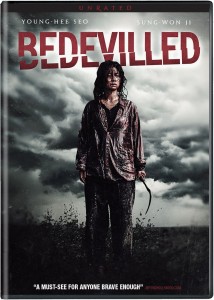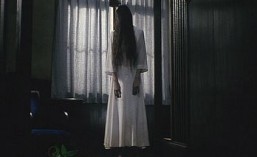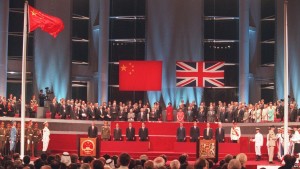While I have focused primarily on Japanese films and its culture, it is still vital to take a look at other regions in Asia. Below is several other Asian countries, their horror film(s), and how they tie into the nation’s cultures and traditions.
Hong Kong:
Brief History:
- British rule from 1841-1997
- Brief Japanese occupation lasting from 1941-1945
- Handover to China in 1997 and established as a Special Administrative Region (SAR).
Examples:
- The Untold Story (1993) and Dr Lamb (1992), which both depict true gruesome crimes that took place in Hong Kong and Macau
HK Cinema:
- Was commercial cinema until the 1990s
- Category III films (equivalent to America’s NC-17, except 18+) introduced in 1988
- Violent Category III films was a response to the handover and the identity crisis of the city state; an allegory of politics in Hong Kong, keyed to the socio-political context prior and after the return to China.
- “Given the impact of the Tiananmen massacre on the citizens of Hong Kong, we could construe The Untold Story as a sort of political or psycho-social allegory. This is an approach that makes a good deal of sense when talking about another film from roughly the same period that also indulges in extreme displays of violence, both sadistic and masochistic.” – LaiKwan Pang & Day Wong in Masculinities and Hong Kong Cinema
South Korea:
Brief History & the South Korean film industry:
- President Kim Young-Sam’s cultural infrastructure initiatives (1994) included the creation of multiplexes with theatres (often had midnight screenings), which encouraged the industrial boom of K-horror
- At the time, the Korean film market was not fully open to Japanese imports; movie directors had little to no competition.
Example:
- Bedevilled (2010) – Bok-nam, a young women who has been mentally, physically, and sexually abused on a remote island seeks vengeance.

K-horror:
- “Desire for revenge…indicates the deep structural conditions of violent sociality in South Korea”, “Rape-revenge genre signals a blunt feminist stance against sexual violence” – Michelle Cho in Beyond Vengeance: Landscapes of Violence in Jang Chul-Soo’s Bedevilled
*Edit 11/09/2015: spelling error, Hong Hong–>Hong Kong
*Edit 11/15/2015: Revision of all categories and post titles for better organization.
*Edit 11/20/2015:
Sources:
https://muse.jhu.edu/books/9789882202221
https://www.coursehero.com/file/10887963/BEYONDVENGEANCE-LANDSCAPESOFVIOLENCEINJANGCHUL-SOOS/ (I am unable to find an online copy of the article, so this will be the only reference to it).

